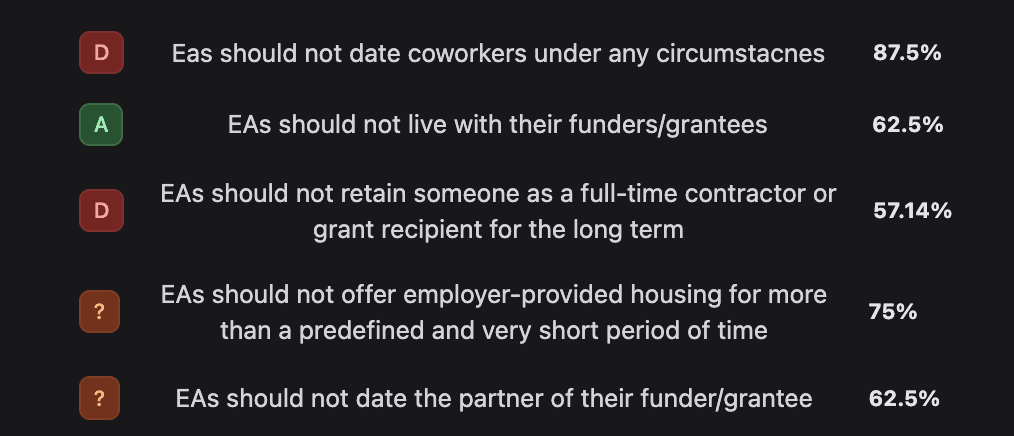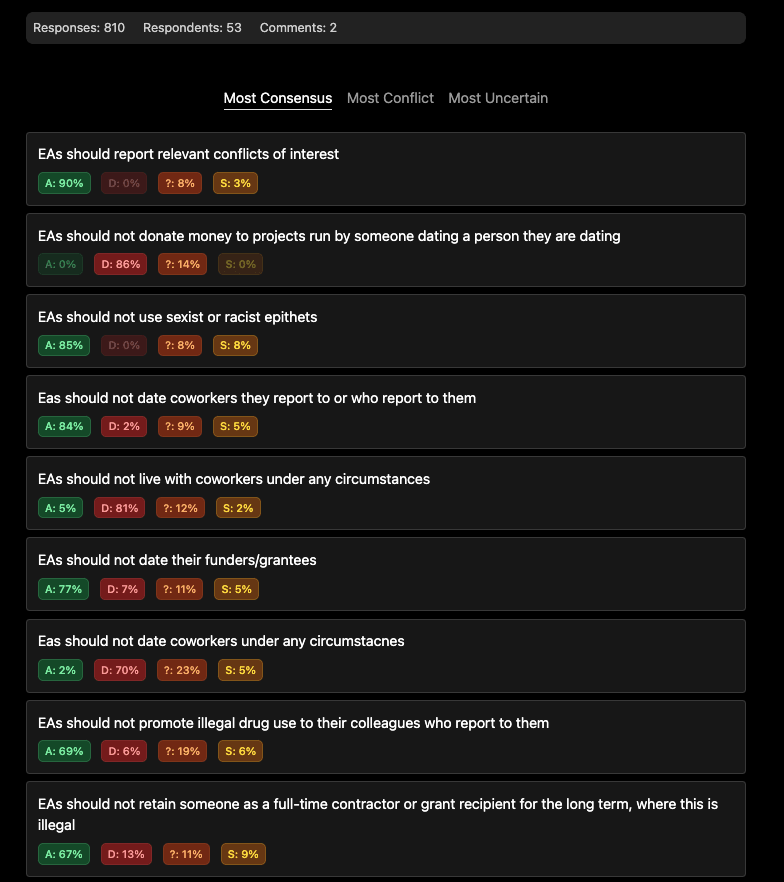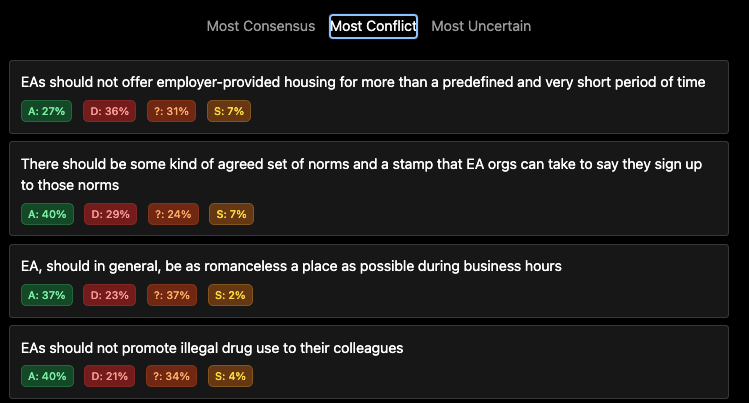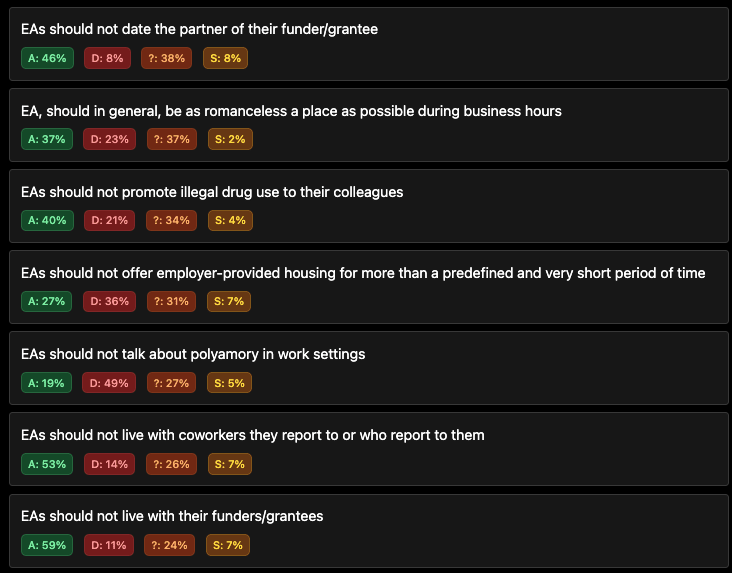There has already been ample discussion of what norms and taboos should exist in the EA community, especially over the past ten months. Below, I'm sharing an incomplete list of actions and dynamics I would strongly encourage EAs and EA organizations to either strictly avoid or treat as warranting a serious—and possibly ongoing—risk analysis.
I believe there is a reasonable risk should EAs:
- Live with coworkers, especially when there is a power differential and especially when there is a direct report relationship
- Date coworkers, especially when there is a power differential and especially when there is a direct report relationship
- Promote[1] drug use among coworkers, including legal drugs, and including alcohol and stimulants
- Live with their funders/grantees, especially when substantial conflict-of-interest mechanisms are not active
- Date their funders/grantees, especially when substantial conflict-of-interest mechanisms are not active
- Date the partner of their funder/grantee, especially when substantial conflict-of-interest mechanisms are not active
- Retain someone as a full-time contractor or grant recipient for the long term, especially when it might not adhere to legal guidelines
- Offer employer-provided housing for more than a predefined and very short period of time, thereby making an employee’s housing dependent on their continued employment and allowing an employer access to an employee’s personal living space
Potentially more controversial, two aspects of the community I believe have substantial downsides that the community has insufficiently discussed or addressed:
- EA™ Group Houses and the branding of private, personal spaces as “EA”
- "Work trials" that require interruption of regular employment to complete, such that those currently employed full-time must leave their existing job to be considered for a prospective job
As said, this list is far from complete and I imagine people may disagree with portions of it. I’m hoping to stake this as a position held by some EAs and I’m hoping this post can serve as a prompt for further discussion and assessment.
- ^
“Promote” is an ambiguous term here. I think this is true to life in that one person’s enthusiastic endorsement of a drug is another person’s peer pressure.





(own views only)
On a different tangent, I think you're treating "X with funder/grantee" relationships as symmetric. However, from my standpoint, the primary responsibility lies with the funder (and the organizations they represent) to manage their professional roles appropriately.
A grantmaker has a professional obligation to their employer and donors to avoid compromising their judgment and/or abusing their power; a grantee has no such professional obligations (Analogously, if Bob cheats on his wife with Candice, in Western liberal societies we generally understand that the bulk of the blame should fall on Bob, not Candice).
This is even more the case if you extend the professional limitations to partners-of-partners. Someone going on a date with me did not consent to have their future dating pool restricted by the community, especially if applied retroactively.
I agree with all of this and maybe should have written it as "X with a grantee" to reflect the power differential and consequent responsibility differential.